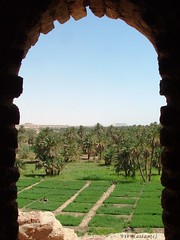 In the German web magazine Telepolis, Eren Güvercin writes on “eco-Islam.” Ecological consciousness in most Muslim-majority countries remains low (while ecological problems associated with rapid urbanization spiral out of control), but European Muslims have been on the forefront of tying ecology to Islamic ethics in recent years. Muslim community organizations in the United Kingdom have been particularly active. This has not gone without notice by the wider public. Only recently, none other than Prince Charles, Prince of Wales, gave a talk entitled “Islam and the Environment,” outlining how teachings of Islam potentially entail an ecological ethos.
In the German web magazine Telepolis, Eren Güvercin writes on “eco-Islam.” Ecological consciousness in most Muslim-majority countries remains low (while ecological problems associated with rapid urbanization spiral out of control), but European Muslims have been on the forefront of tying ecology to Islamic ethics in recent years. Muslim community organizations in the United Kingdom have been particularly active. This has not gone without notice by the wider public. Only recently, none other than Prince Charles, Prince of Wales, gave a talk entitled “Islam and the Environment,” outlining how teachings of Islam potentially entail an ecological ethos.
Güvercin highlights the work of the Islamic Foundation for Ecology and Environmental Sciences:
The work of the IFEES is exemplary. Their initiatives in Great Britain have created an effective public image of an eco-Islam. Its newsletter EcoIslam presents an impressive synthesis of Islamic and environmental discourses, and it skillfully informs readers about global relations and practical, everyday actions to be taken. IFEES is networked with other local British organizations that have emerged in the past years.
The author cites the work of a sociologist, Sigrid Nökel, who has investigated the phenomenon of Islamic environmentalism and found that the notions of fitra, tawhid, and mizan play an important role in its formulation. She points to the work of Sufi-inspired philosopher Seyyed Hussein Nasr, who calls on individual Muslims to change their everyday conduct in accordance with the order of nature.
Read the full article (alas, only in German) here. An interview by Güvercin with Nökel is available in English.











